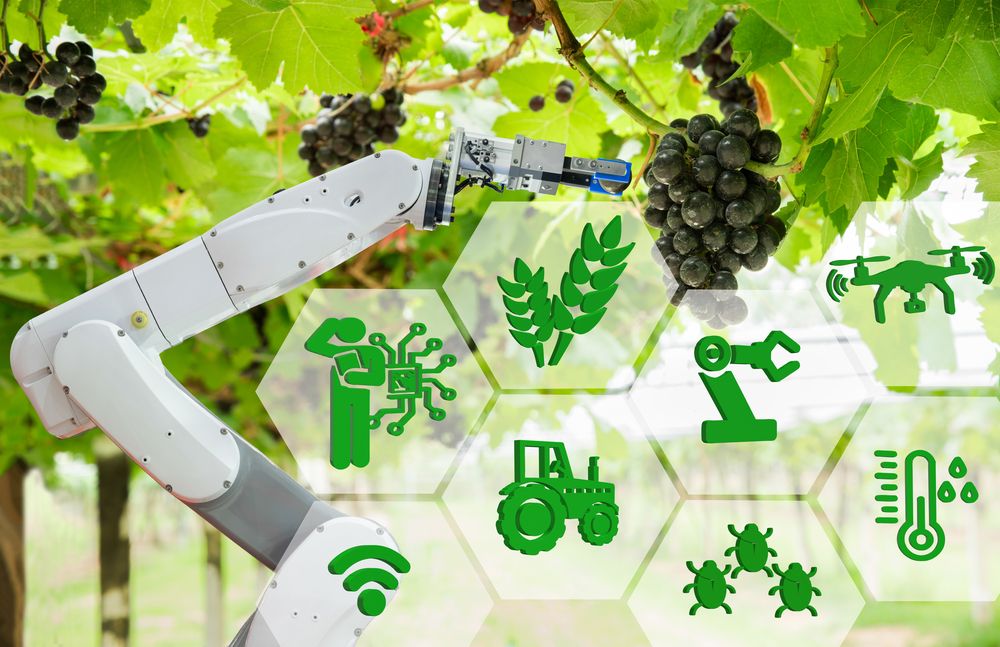Artificial intelligence (AI), linked sensors, smart climate control and other innovative solutions impact indoor farming and promote sustainability and resilience in crop production.
 Developing Cloud-Based Systems for Managing Indoor Farming Operations
Developing Cloud-Based Systems for Managing Indoor Farming Operations

Jane Mash, Editor-in-Chief | Environment.co
The agricultural industry has seen tremendous transformations over the last 50 years. Technological advancements have increased the speed, productivity and scale of farming operations.
Food production is now in the early stages of yet another revolution, this time with data analytics and cloud-based systems at the center. Artificial intelligence (AI), linked sensors, smart climate control and other innovative solutions impact indoor farming and promote sustainability and resilience in crop production.
From the Fields to the Cloud
Rapid population growth has raised concerns about the capacity of the agricultural sector to meet food demand, which is expected to increase by 59%–98% by 2050. Traditional farming methods face many constraints — significant land and water use coupled with massive greenhouse gas emissions — making them unsuitable and unsustainable for future operations.
The emergence of cloud-based systems for managing indoor farming presents a practical solution to these challenges. For example, indoor vertical farms use up to 98% less water than conventional agriculture, thanks to advanced systems that allow farmers to apply water in exact doses.
Cloud computing applications and wireless connectivity lie at the heart of the efficiency of indoor farming.
Cloud-Based Systems in Indoor Farming Operations
Wireless IT network infrastructure brings all these innovations together, enabling farmers to make data-driven decisions.
Collection and Integration of Sensor Data
Cloud-connected Internet of Things (IoT) sensors are integral to precision farming operations. These systems collect and transmit real-time data from the field to machine learning (ML) algorithms, providing increased visibility into the condition of crops. Sensors can monitor and control various environmental factors, such as soil quality, nutrient deficiencies and moisture levels, to optimize growing conditions and increase productivity.
Additionally, IoT technology in indoor farming can provide valuable data analytics, allowing growers to improve the overall efficiency of their operations. For instance, cloud computing algorithms can figure out how changes, such as adding or taking away certain fertilizers, will impact crop production volume. This approach saves resources, reduces waste and minimizes environmental impact.
Smart Lighting Solutions
Natural lighting is essential to healthy plant growth. However, until recently, replicating the same conditions in indoor farming has been mainly out of the grower’s control. Smart LED lighting can supplement or even replace sunlight in interior agriculture environments.
Farmers can set up AI-enabled artificial lighting to automatically achieve the exact spectrum and intensity required at each stage of plant growth. By providing increased control over lighting systems, cloud-based systems can improve energy efficiency and help make agriculture more sustainable.
Automated Climate Control
Achieving optimal climate conditions is crucial to growing healthy, high-yielding crops indoors. The emergence of integrated cloud-based climate control systems ensures the right conditions for indoor farming regardless of outdoor weather.
For instance, heating, ventilation and air conditioning (HVAC) innovations like programmable thermostats and variable speed fans can help farmers meet humidification and dehumidification goals at the tap of a button. With cloud technology, they can adjust climate conditions to provide precisely what the crops need at the time for maximized growth.
Robotics
Autonomous machinery can benefit from modern cloud technologies' powerful computation, communication and storage capabilities. For instance, these systems can allow humans to remotely delegate tasks like irrigation and pest control to robots through networks.
Recent research in cloud-based swarm robotics shows promising results in agricultural applications. The bots feature sensors and control mechanisms to monitor the field and transfer the data to the cloud, which then issues commands for the robots to implement. This method can automate several indoor farming tasks and improve scalability.
The Future of Agriculture Will Be Tech-Driven
As indoor farming operations become more mainstream, the demand for products and solutions that help increase yields and consistency will increase, too. Tech-assisted agriculture will help farmers meet demand, alleviating the pressure on farmers and improving the industry’s resilience against future challenges.
Naturally, there are concerns about the drawbacks of adopting cloud-based solutions, such as the potential job loss. However, farmers can rest easy knowing that technology will only be able to replace 60% of workers at most while opening new opportunities in related sectors like food distribution and preservation for those affected.
Adopt Cloud-Based Systems in Agriculture
The food production industry must embrace the connectivity-enabled digital revolution, particularly for indoor farming environments. These cloud-based technologies can improve decision-making and help farmers use resources more efficiently and sustainably.
The content & opinions in this article are the author’s and do not necessarily represent the views of AgriTechTomorrow
Comments (0)
This post does not have any comments. Be the first to leave a comment below.
Featured Product

